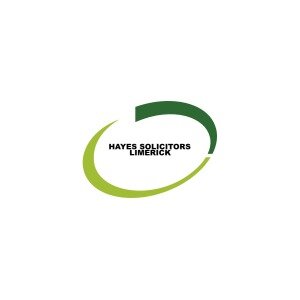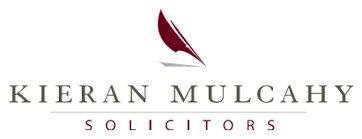Best Whistleblower & Qui Tam Lawyers in Limerick
Share your needs with us, get contacted by law firms.
Free. Takes 2 min.
List of the best lawyers in Limerick, Ireland
About Whistleblower & Qui Tam Law in Limerick, Ireland
Whistleblower and qui tam laws provide vital protections for individuals who report wrongdoing within organisations. In Limerick, Ireland, these laws are designed to encourage the disclosure of illegal, unethical, or improper actions occurring in both public and private sectors. Whistleblowing generally refers to the act of revealing information concerning illegal or unsafe practices. Qui tam, a term more common in the United States, refers specifically to cases where whistleblowers can receive a portion of recovered damages when exposing fraud against the government. While Ireland does not have a direct equivalent to US-style qui tam actions, strong protections exist for whistleblowers under Irish law.
Why You May Need a Lawyer
If you are considering reporting wrongdoing at your workplace or have already done so, having a lawyer can be very beneficial. Some common situations that may require legal help include:
- If you are unsure about whether the activity you have witnessed qualifies as reportable wrongdoing under the law
- If you are experiencing retaliation, mistreatment, or dismissal after reporting concerns
- If you have questions about your rights and protections as a whistleblower
- If your employer threatens legal action or undermines your credibility after you make a report
- If you want advice on how to safely and effectively make a protected disclosure
- If you believe your actions may have legal consequences or personal risks
- If you are seeking compensation or considering a claim related to mistreatment following your disclosure
A solicitor experienced in whistleblower and employment law can clarify your rights, help you make disclosures through proper channels, and support you if disputes arise.
Local Laws Overview
In Limerick, and across Ireland, the main piece of legislation protecting whistleblowers is the Protected Disclosures Act 2014. This law covers most workers in both the public and private sectors and sets out clear guidelines for making what are called "protected disclosures". The Act provides legal protections against penalisation or victimisation for workers who report certain types of wrongdoing, including:
- Criminal offences
- Failure to comply with legal obligations
- Miscarriages of justice
- Endangerment of health and safety
- Damage to the environment
- Unlawful use of public funds
- Concealment of any of the above
Under the Act, employees can make disclosures internally to employers or designated persons, externally to certain prescribed bodies, or, in specific circumstances, publicly. The law generally prohibits actions such as dismissal, harassment, transfer to less favourable duties, or threats thereof, as a form of retaliation against whistleblowers.
In addition to this, certain regulators within industries like healthcare, financial services, and environmental protection may have their own procedures for receiving and investigating disclosures.
Frequently Asked Questions
What is a whistleblower in Ireland?
A whistleblower is someone who reports wrongdoing or illegal activity in their workplace. This can include fraud, safety hazards, environmental damage, or breaches of law.
Is whistleblowing protected by law in Ireland?
Yes, the Protected Disclosures Act 2014 offers protection to workers who report wrongdoing in good faith.
What types of wrongdoing can I report?
Examples include criminal offences, health and safety risks, environmental damage, misuse of public money, and breaches of legal obligations.
Can I be fired for making a protected disclosure?
It is illegal for an employer to dismiss or otherwise penalise an employee solely because they made a protected disclosure.
How do I make a protected disclosure?
You can report wrongdoing internally to your employer or to external bodies prescribed under the law. The method depends on the nature of the wrongdoing and your workplace policies.
Do I need evidence to make a report?
You should have a reasonable belief that the information you are disclosing is true. You do not need to conclusively prove wrongdoing, but your suspicion must be reasonable.
Are there specific protections for whistleblowers in Limerick?
Legal protections apply throughout Ireland, including Limerick, under national legislation like the Protected Disclosures Act.
What should I do if I suffer retaliation?
Contact a solicitor as soon as possible. You may also be able to seek redress through the Workplace Relations Commission or the courts.
Is my identity kept confidential?
The law requires that your identity is kept confidential as far as possible unless disclosure is necessary for the investigation or required by law.
Can I receive compensation for retaliation?
Yes, if you experience unlawful treatment or dismissal because of a protected disclosure, you may be entitled to compensation or reinstatement through legal channels.
Additional Resources
If you are considering making a disclosure or need information, helpful resources include:
- The Office of the Protected Disclosures Commissioner - oversees the protected disclosures regime in Ireland
- Workplace Relations Commission - supports workers subjected to penalisation and offers redress pathways
- Citizens Information - provides accessible guides on whistleblowing rights and procedures
- Your trade union (if applicable) for support and guidance
- Specialised legal practitioners in employment and whistleblower law
Next Steps
If you believe you have witnessed wrongdoing and are considering making a report, it is advisable to:
- Record facts, dates, times, and any supporting evidence discreetly and securely.
- Review your employer’s whistleblowing policies, if available.
- Seek confidential legal advice from a solicitor experienced in whistleblower cases.
- Consider contacting an external prescribed body if you do not feel safe reporting internally.
- Avoid discussing your intentions widely to prevent potential retaliation.
Legal professionals can guide you on the safest and most effective way to disclose wrongdoing, protect your rights, and respond to any negative consequences at work. Early consultation with a specialist lawyer helps ensure your actions are protected and that you receive any assistance or compensation you are entitled to.
Lawzana helps you find the best lawyers and law firms in Limerick through a curated and pre-screened list of qualified legal professionals. Our platform offers rankings and detailed profiles of attorneys and law firms, allowing you to compare based on practice areas, including Whistleblower & Qui Tam, experience, and client feedback.
Each profile includes a description of the firm's areas of practice, client reviews, team members and partners, year of establishment, spoken languages, office locations, contact information, social media presence, and any published articles or resources. Most firms on our platform speak English and are experienced in both local and international legal matters.
Get a quote from top-rated law firms in Limerick, Ireland — quickly, securely, and without unnecessary hassle.
Disclaimer:
The information provided on this page is for general informational purposes only and does not constitute legal advice. While we strive to ensure the accuracy and relevance of the content, legal information may change over time, and interpretations of the law can vary. You should always consult with a qualified legal professional for advice specific to your situation.
We disclaim all liability for actions taken or not taken based on the content of this page. If you believe any information is incorrect or outdated, please contact us, and we will review and update it where appropriate.











